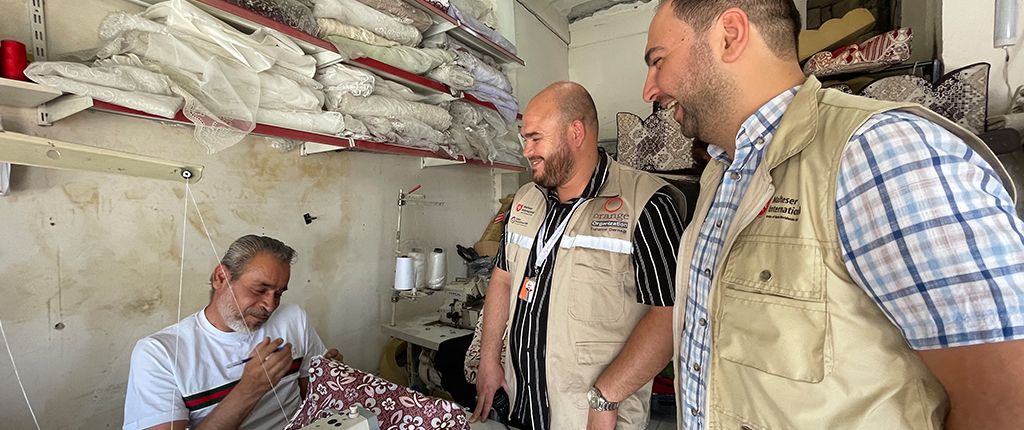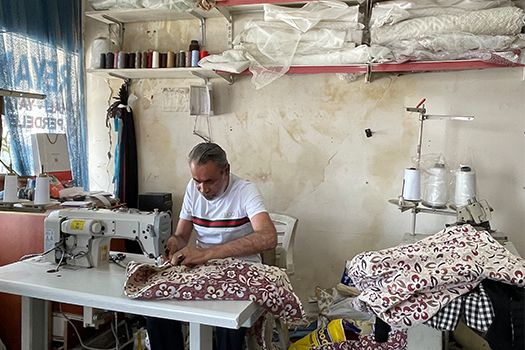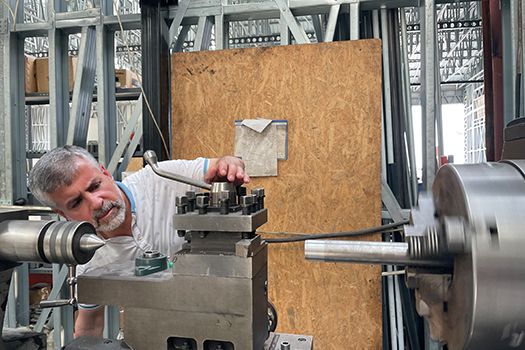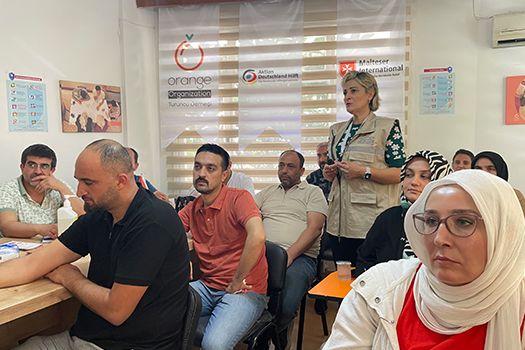
Return to self-employment

Yusuf Awad and Agir Mahiaoglu have much in common. Both currently live with their families in Kahramanmaras, Türkiye, fled Syria in 2012, learned their trades from their fathers as teenagers, and started their own businesses. Both have since lost their businesses.
Yusuf Awad was just ten years old when his father taught him how to sew clothes with a machine, around 40 years ago. He loves his profession but faced significant challenges. "The biggest challenge when we came to Türkiye was the language. I couldn't speak Turkish and didn't know the culture. So I first had to work as a day laborer in agriculture before I could work as a tailor again. Four years ago, I had saved enough money to start my own business," Yusuf Awad reports.
The craft also has a long tradition in Agir Mahiaoglu's family. His grandfather was a lathe operator who passed his knowledge to Agir's father, who then passed it on to Agir. The family had their own business in Latakia, but the war broke out, and Agir fled with his family. The Syrian army confiscated his machines, leaving him with only his knowledge.
"First the man-made disaster, the war, and then the natural disaster, the earthquake"

For both families, life on the run meant starting over repeatedly. They lived in neighboring villages until the war caught up with them, fled across the border, and lived in refugee camps until the Turkish government resettled them in Kahramanmaras a few years ago. After they rebuilt their lives, the earthquake struck.
"First the man-made disaster, the war, and then the natural disaster, the earthquake," says Agir Mahiaoglu. Around 55,000 people died in the 2023 earthquake in Türkiye and Syria, with millions losing their homes. Kahramanmaras was one of the hardest-hit cities in Türkiye. The business premises of Yusuf Awad and Agir Mahiaoglu were also damaged, with Agir's workshop so badly affected that he couldn't return.
In March 2024, around a year after the earthquake, we began working with the local organization Orange to support small business owners in Türkiye who needed assistance. Some, like Agir, had to start over in new premises. Yusuf was luckier; his tailor shop is still standing, though it has a large crack under the ceiling. Finding new premises has been challenging, as living and office space has been scarce since the earthquake.
From emergency aid to reconstruction

Yusuf and Agir are now participating in a 60-hour course with 30 other participants. They are learning how to advertise their businesses on social platforms, design their company logos, and more. At the end of the course, they will develop their own business plans.
"Immediately after the earthquake, the priority was to save lives, provide medical care, and meet basic needs. But the earthquake's impact was so immense that people are still suffering. That's why this project aims to strengthen Syrian and Turkish entrepreneurs so they can provide for themselves and their families again," says Lena Schellhammer, project officer for Türkiye. "I already know much of what I'm learning in the course, but some of it is still interesting. Above all, it's good that I'm getting money to buy new machines. That helps a lot," says Agir.
Participants in the program receive 2,900 euros as start-up capital. "This is a pilot project," says Lena Schellhammer. "If it proves successful, we hope to expand it further to support more people who have lost their livelihoods due to the earthquake."








